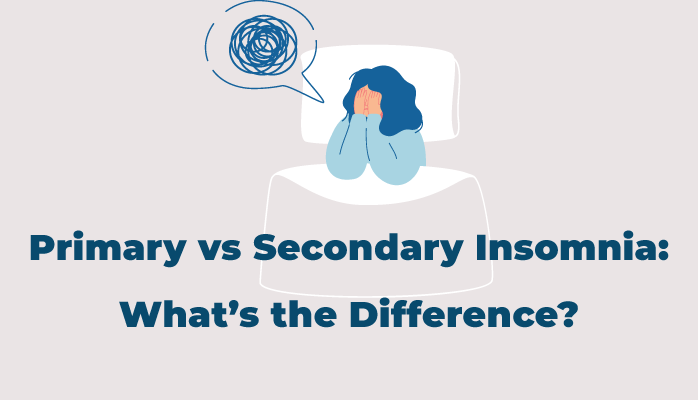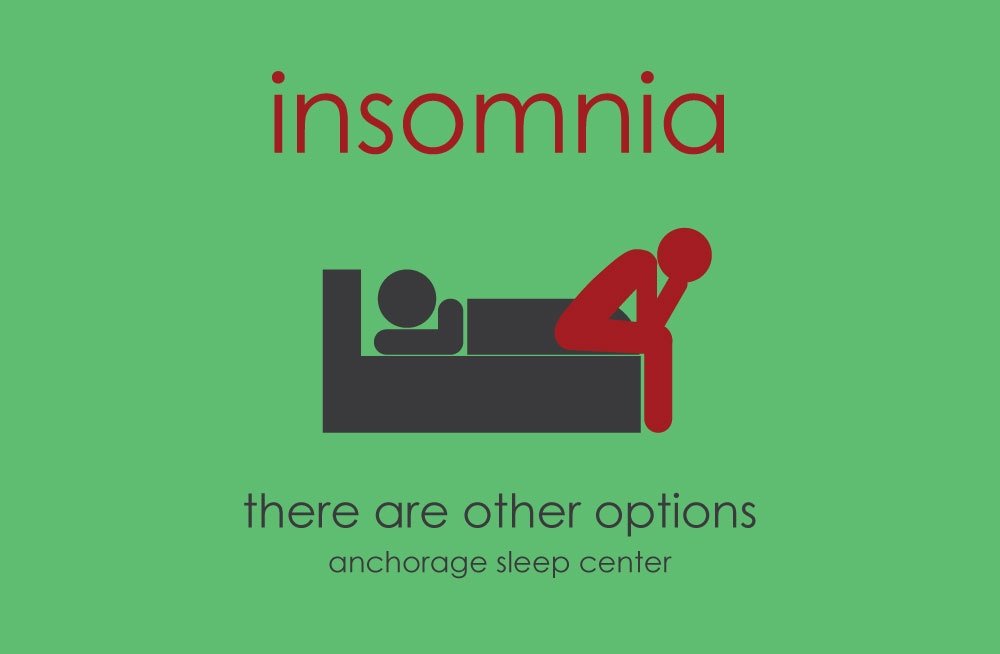What Does Insomnia Look Like?
Insomnia is a sleeping disorder that prevents you from getting enough sleep because:
- You have trouble falling asleep
- You have trouble staying asleep throughout the night
- You wake up much earlier than you want
If you have insomnia you never feel like you are getting enough rest – probably because you aren’t. To say the least, it’s frustrating to not be able to sleep when you want to, and there are a whole host of risks associated with sleep deprivation.
Overview of Primary vs Secondary Insomnia
There are two types of insomnia: secondary insomnia and primary insomnia.
Secondary insomnia means that you have insomnia as a direct result or symptom of something else, such as a health condition, medication, pain, substance abuse, etc. For example, depression can be an underlying cause for insomnia.
Primary insomnia is the opposite of secondary insomnia, and means that your trouble sleeping is not directly related to some other underlying issue.
While these terms are convenient and in many cases clear cut, it’s also easy to see that the line can become blurred. For example, in the case where both insomnia and depression are present, the question becomes, “Which comes first?”
Overview of Chronic Insomnia vs. Acute Insomnia
Insomnia varies in how long it lasts, and the frequency with which it occurs. Primary and secondary insomnia are further broken up into two descriptors for short and long-term insomnia:
- Acute insomnia is short-term, such as dealing with insomnia for up to a month, but no more
- Chronic insomnia is symptomatic long-term (defined as insomnia at least three nights per week for a month or more)
Taking these further descriptors into account, you can have:
- Secondary/acute insomnia – temporary insomnia in response to a temporary illness, stress, etc.
- Primary/acute insomnia – temporary insomnia for no discernable reason
- Secondary/chronic insomnia – chronic insomnia in response to (usually) chronic a chronic life problem such as pain, long term illness, etc.
- Primary/chronic insomnia – chronic insomnia with no discernible cause
What Causes Short Term (Acute) Insomnia?
Short term insomnia is usually caused in response to temporary, external factors such as:
- Short term illness
- Jet lag
- Switching shifts at work
- Temporary regimens of medication
- Travel
- Significant stress (divorce, job loss, death of loved one, moving)
Generally, acute insomnia may clear up once the cause goes away.
What Causes Long Term (Chronic) Insomnia?
Causes of chronic insomnia include things like:
- Chronic stress
- Chronic anxiety
- Depression
- Chronic pain
- Circadian rhythm disorders
- Dependence on certain medications
- Habitual lifestyle choices
- Chronic substance abuse
- Especially in Alaska, seasonal effects or transitions (light/dark extremes)
Treatment Options for Insomnia
Insomnia should be treated differently depending on what type of insomnia you have. Acute insomnia will likely go away on its own, especially in the case of secondary/acute insomnia. When the cause goes away, the insomnia should disappear. Where you are able in such a case, you might work on overcoming the root cause to rid yourself of insomnia.
Chronic insomnia treatments may be a little less straightforward, and will likely require some intervention of some sort – usually behavioral therapy. This might include:
- Therapy
- Education on good sleep habits
- Lifestyle changes
- Ways to reduce severity of chronic causes (such as pain treatment)
- Avoiding screens before bedtime
It is not recommended to treat chronic insomnia with over the counter pills, such as melatonin, because they may have undesired side effects and lose their effectiveness over time.
The other reality is that sometimes chronic insomnia is the direct result of choices we make or don’t make. For example, insomnia might be caused by chronic TV binge watching. Therefore, an easy fix is simply by making the choice to turn off the TV. This also applies to similar behaviors, such as scrolling through social media, working out or eating too close to bedtime and stressing from the day. All of these behaviors have alternative management/treatments other than medication.
For more information about treating insomnia in Alaska, contact our sleep specialists by taking this free online sleep test.



